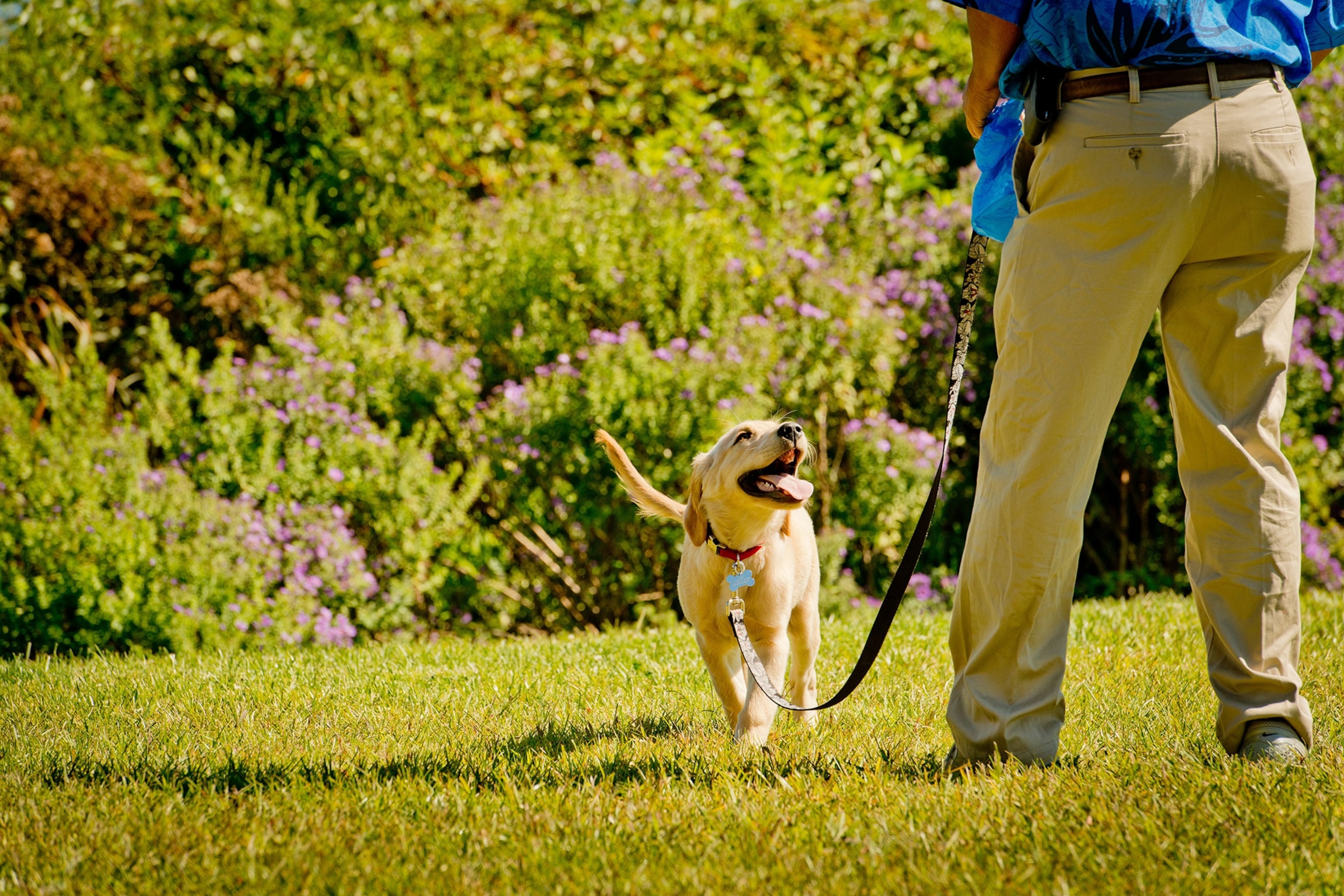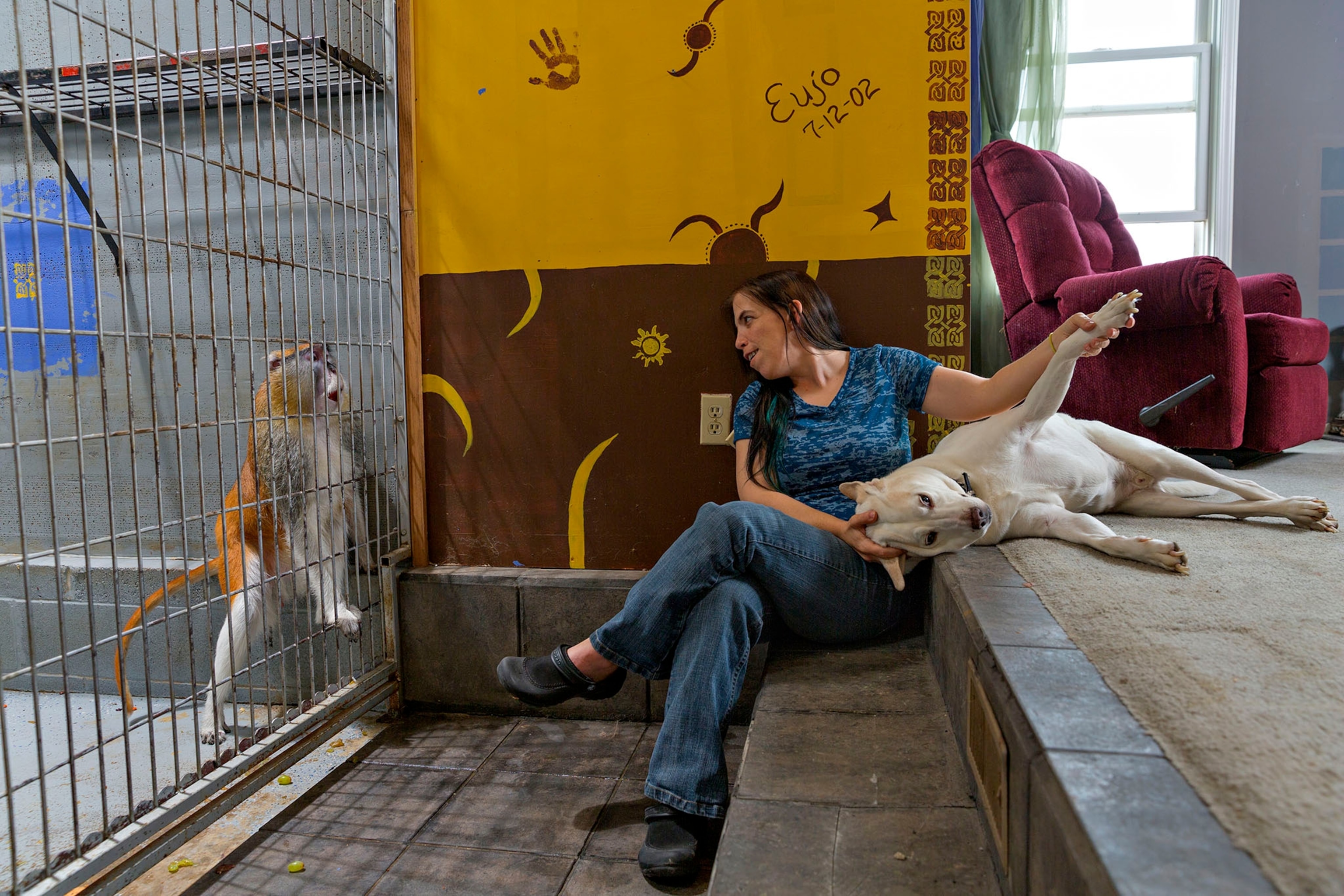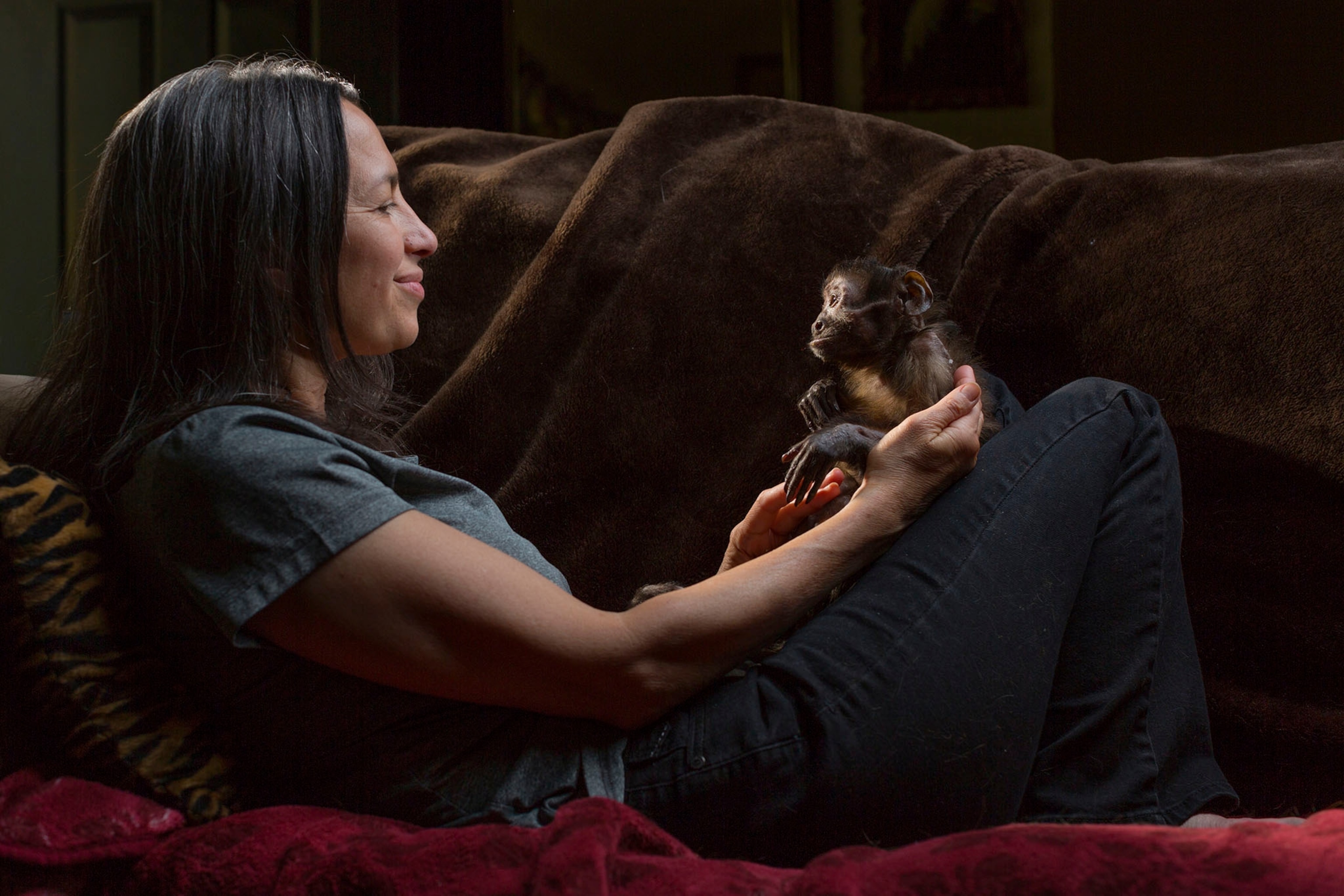Does Your Dog Prefer You Over Anyone Else? It's Complicated.
Whether your pet wants to be around its owner or a stranger depends on the situation, a new study says.
Does your dog really want to hang out with you instead of anyone else? We like to think so, but research shows that it's a little more complicated.
Scientists already knew that dogs interact with objects and explore a room more in the presence of their owner than with a stranger. And while you might not have felt you needed academic research to validate this, pets greet their owners longer and more enthusiastically than non-owners after a period of separation.
A new study has shown, though, that how dogs behave with their owners vs. strangers may depend on the context and the task. (Read more about why dogs are so friendly.)

Researchers in Florida gave pet dogs recruited from homes a choice of getting petted by their owner or by a stranger in different situations.
One group was tested with their owner and a stranger in a familiar place: a room in their own home. Another was tested with their owner and a stranger in an unfamiliar place. The dogs were free to do whatever they wanted; if they approached, the person petted them for as long as they were close.
The results bring to mind the old real estate cliché: Location, location, location!
Still The One
In an unfamiliar place, dogs spent more of their interaction time with their owners—nearly 80 percent. But in a familiar place, the animals spent more with the stranger—around 70 percent, according to the paper, published in the Journal of the Experimental Analysis of Behavior.
Should your feelings be hurt that you don't always come first? Probably not, says lead author Erica Feuerbacher, now assistant professor of companion animal behavior and welfare at Virginia Tech. (See our favorite dog pictures.)
"In the stressful, unfamiliar context, we see that you are still important—you're your dog's number one."
Julie Hecht, a Ph.D. candidate at the Graduate Center, City University of New York, notes by email that the study "joins a growing body of research finding that context and environment can affect dog behavior, preferences, and perspectives."
"In new places or during moments of discomfort, dogs can be inclined to seek out their owners. When comfortable, dogs are more likely to interact with unfamiliar people. People living with dogs might observe this behavior in their own dogs!"
No Stranger Danger
Study leader Feuerbacher agrees that in a familiar place, the owner's presence probably helps make dog feel safe and comfortable enough to spend time with a stranger.
"While we didn't test that specifically, I think it's a reasonable assumption," Feuerbach says. Similar to previous research, "they're readier to go and explore their environment." (See "Can Dogs Feel Our Emotions? Yawn Study Suggests Yes.")
The study also tested how shelter dogs and owned dogs interacted with two strangers at a time. All showed a preference to be petted by one stranger rather than the other—though the experts don't know why.
Consistent with previous research showing that shelter dogs start to treat a person differently from a new stranger after just three 10-minute interactions, in fact this study suggests it happens within the first ten minutes.
This is reassuring information for anyone who's considering taking in a previously owned dog. While losing a home is no picnic, they readily form new bonds.
"Separation and the shelter environment are very stressful to dogs, but I don't think dogs are going into their new home and pining for their old home," she says.
"When you adopt one, you become their person."









